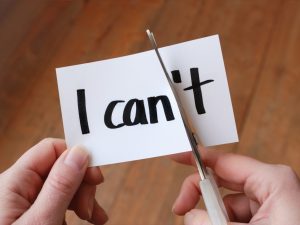We can affirm that self-esteem is the base, the foundation of our psychological health. If our self-esteem is adequate, we can healthily interact with the world, assert ourselves in any situation and defend our rights without alteration. With healthy self-esteem, we will be immune or little vulnerable to the emotional attacks of the environment, and we will act calmly in any situation, accepting ourselves unconditionally, which will make us satisfied with our reactions and behaviors.
Healthy self-esteem prevents psychological illnesses such as depression or anxiety. It is also one of the bases of human relationships, and therefore, it directly affects our way of acting in the world and relating to others.
Nothing in our way of thinking, feeling, and acting escapes the influence of self-esteem.
Healthy self-esteem allows us to have a series of behaviors and attitudes that benefit health and quality of life.
For example, a person with healthy self-esteem:
You are willing to defend your rights even when you encounter opposition or emotional attacks.
She feels confident enough to change his opinion or hers if experience shows him that she was wrong.
She can act according to her criteria without feeling guilty when others do not agree with her behavior.
She does not waste time worrying excessively about what has happened to her or what may happen to her in the future. She learns from the past and plans for the future but lives the present intensely.
She is confident in her ability to solve her problems without being cowed by failures and difficulties, and when she needs it, she is willing to ask for help from others.
As a person, she considers herself and feels the same as anyone else, neither inferior nor superior; simply equal in dignity; and recognizes differences in specific talents, professional prestige, or financial position.
Recognize that it can be exciting and valuable to other people.
She does not allow herself to be manipulated, although she is willing to collaborate if it seems appropriate and convenient.
She recognizes and accepts in herself different feelings and emotions, both positive and negative, and is willing to reveal them to another person if it seems worthwhile and so she wishes.
He can enjoy a wide variety of activities.
He is sensitive to the feelings and needs of others; he respects the generally accepted sensible rules of coexistence and understands that he does not have the right — nor does he wish to — to have fun at the expense of others.In conclusion, we can affirm that healthy self-esteem will bring us significant benefits in all aspects of our life.
Therapy to improve low self-esteem
Self-esteem is a concept that manifests itself in a changing way depending on our vital situation and our circumstances; in fact, self-esteem is the trait that constantly improves when doing the psychological treatment.
The Manuel Escudero Center offers therapy to people with low self-esteem problems.
Say things that help you. Connect with your inner voice. Is it too critical? Are you too hard on yourself? For a few days, write down some of the things you say to yourself. Check the list. Are they the kind of things you would say to a good friend? If not, rewrite them in such a way that they are accurate, fair and kind. Read the new phrases often. Do this until the behavior of thinking in this way becomes a habit.
Accept what is not perfect. It’s always good to do your best. But when you think you need to be perfect, you can’t feel good if you don’t achieve that perfection. Accept the best you can give of yourself. And let yourself feel good about it. Ask for help if you can’t overcome that need to be perfect.
Set goals and push yourself to achieve them. If you want to feel good about yourself, do things that are good for you. Maybe you want to eat a healthier diet, get fitter, or study better. Set a goal. Then make a plan to achieve it. Follow your plan. Keep track of your progress. Be proud of having come this far. Tell yourself: “I have been following my plan to train 45 minutes a day. I feel good for having achieved it. And I know I can continue like this.”
Focus on what is going well for you. Are you so used to talking about your problems that they are the only thing you see? It’s easy to be dominated by what is going wrong for you. But, unless you balance it with what works for you, it will only make you feel bad. The next time you find yourself complaining about yourself or having a bad day, find something that worked for you to counter it.
Be generous and help others. Help is one of the best ways to grow your self-esteem. Help a classmate study, help clean up your neighborhood, participate in a fundraiser for a good cause. Help out at home or school. Make it a habit to be kind and fair to others. Do things that make you proud of the type of person you are. When you do positive things for other people, no matter how small, your self-esteem will grow.
Unstable low self-esteem
This depends on external events for its evaluation: if a favorable or successful event occurs, the confidence in your person rises, and, after the victorious moment, it falls back to its initial level. It is one of the most dangerous levels that exist since they depend entirely on the events of the environment.
Inflated self-esteem
People with this type of self-esteem cannot listen to others or recognize when they have made a mistake, assuming a hostile position when trying to make them see that they have made a mistake. They are individuals with strong personalities, and they believe they are better than others.
Martín Ross, in his work “The map of self-esteem” raises three types of self-esteem:
Collapsed or low self-esteem
Those who present this type of self-worth generally have a terrible concept of themselves. They are vulnerable to what others think. If the opinion is negative, your self-esteem will collapse, and if it is positive, it will increase.






























Add Comment